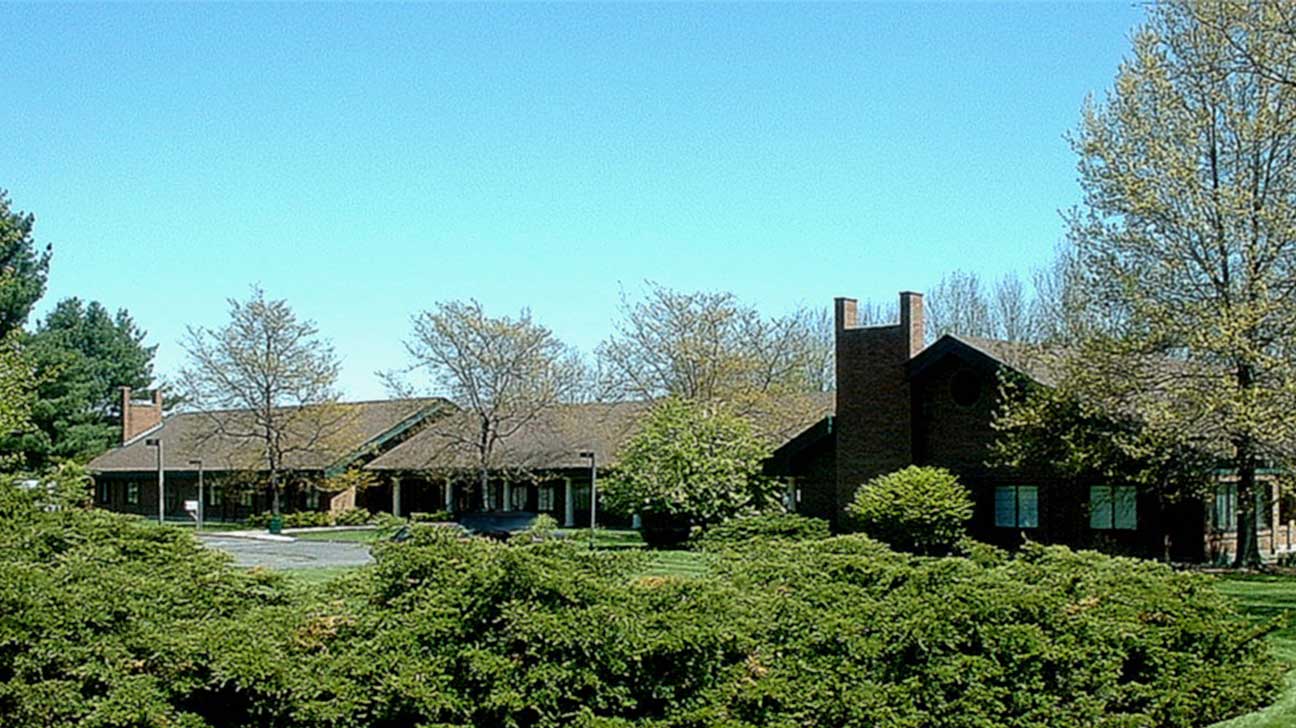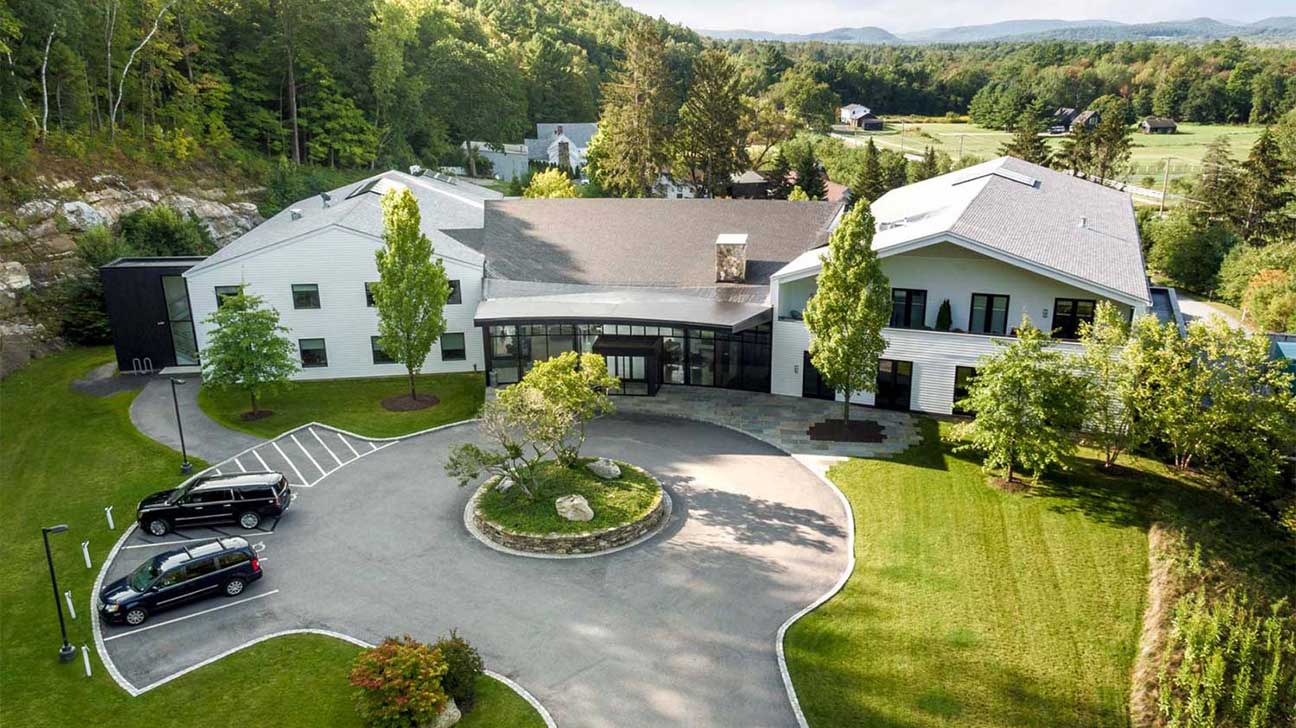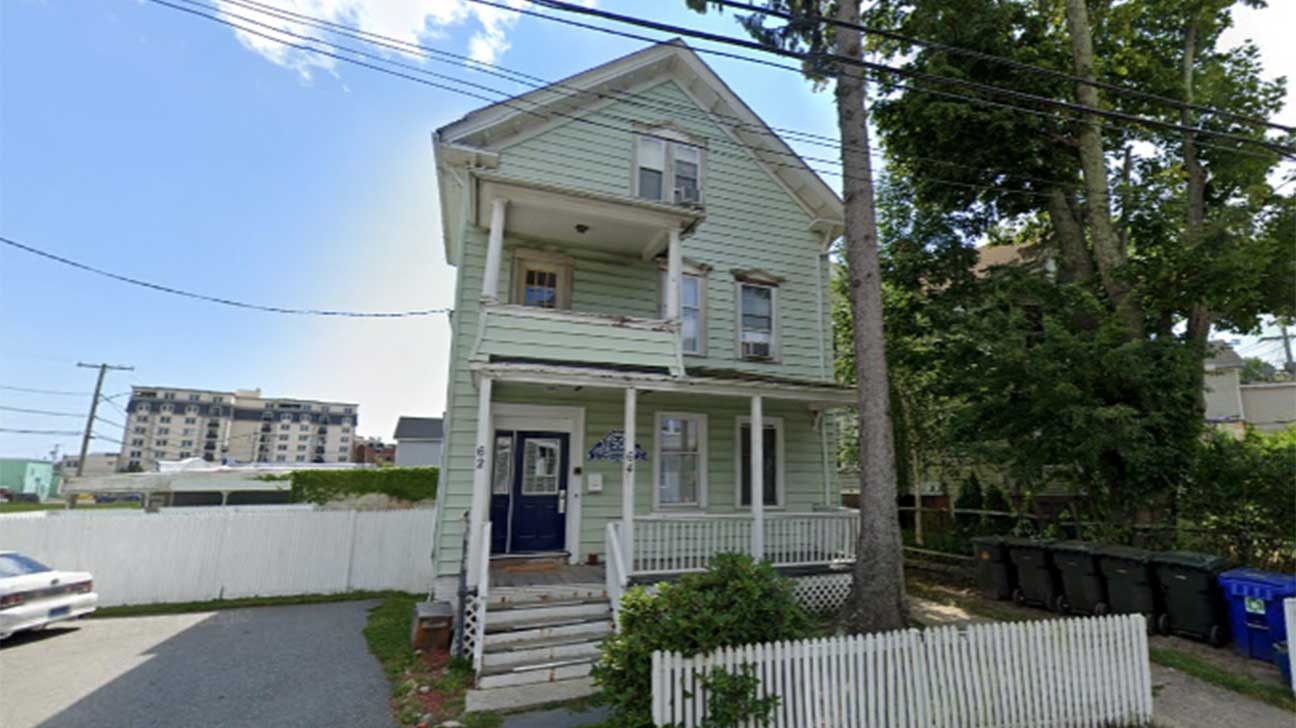
Detoxing from alcohol abuse on your own can be extremely difficult and even dangerous. If you’re experiencing withdrawal symptoms, the clinicians at a medical detox can ease recovery.
Clients at Connecticut alcohol and drug addiction recovery centers find relief from withdrawal symptoms and receive support as they move into an inpatient rehab or outpatient program.
List Of Connecticut Drug And Alcohol Treatment Centers
The following rehab centers have been chosen because of their many accreditations and the number of treatment services offered.
1. First Step Detox, Bridgeport, Connecticut
First Step Detox is a treatment facility in Bridgeport, CT, and one of many addiction rehab programs of Recovery Network.
Treatment providers in this medically-monitored residential detoxification unit help adults detox from alcohol, opioids, and benzodiazepines.
Treatment services at First Step Detox include:
- group and family therapy
- medication-assisted treatment (MAT), including methadone treatment
- medical management
- referral services for continuing care, such as inpatient treatment or sober living
- dual diagnosis treatment
- HIV/AIDs treatment
Recovery Network facilities are affiliated with the National Institute on Drug Abuse (NIDA) and Substance Abuse Mental Health Services Administration (SAMHSA).
Location and contact information:
425 Grant St.
Bridgeport, CT 06610
(203) 416-1915
2. Midwestern Connecticut Council of Alcoholism (MCCA), Danbury, Connecticut
MCCA offers withdrawal management services in its Danbury, CT, drug rehab center. The structured program includes medications, 12-step support groups, and counseling sessions.
Aftercare planning is an essential part of MCCA’s detoxification experience. Clients receive guidance for post-detox plans based on their individual needs.
Clients continue recovery in one of many MCCA treatment programs, which include:
- short and long-term residential treatment
- intensive outpatient programs (IOP)
- seven outpatient treatment programs
- relapse prevention program
The Connecticut Department of Public Health (DPH) has granted licenses to MCCA facilities.
Location and contact information:
38 Old Ridgebury Rd.
Danbury, CT
(203) 792-4515
3. Mountainside, Canaan, Connecticut
Mountainside addiction treatment center offers medical and psychiatric services for those in the withdrawal phase of recovery.
All Mountainside rehabilitation centers are accredited by the Commission on the Accreditation of Rehabilitation Facilities (CARF) and the Joint Commission.
In Mountainside’s detox program, patients are offered:
- nutritional assessments
- pharmacogenetic tests
- physical exams
- psychiatric evaluations
- withdrawal assessments
- recovery education
- group and individual counseling
- wellness approaches, such as meditation, yoga, and sleep education
Location and contact information:
187 S. Canaan Rd.
Canaan, CT 06018
(860) 824-1397
4. Southeastern Council On Alcoholism And Drug Dependence (SCADD), New London, CT
SCADD’s Acute Care and Evaluation Detox program offers clients medical detox and evaluations for their substance abuse recovery.
Professional nurses and doctors care for clients living on-site. Clients receive addiction services such as around-the-clock supervision, counseling, and medical management.
Upon discharge, the staff at this New London, CT drug rehab center create a treatment plan for patients. This may include continued care in a partial hospitalization or residential program.
Treatment centers run by SCADD are CARF-accredited and licensed by the State of Connecticut Department of Public Health.
Location and contact information:
47 Coit St.
New London, CT
(860) 447-1717
The Detoxification Process In Connecticut
Residents of Connecticut experiencing drug or alcohol addiction have a better chance of successful recovery when they enroll at a professional rehab center.
The first step in the recovery process is safely ridding the body of toxins. People who have a long history of alcohol abuse may experience life-threatening withdrawal symptoms.
Symptoms range from physical to mental and may include:
- sweating
- vomiting
- shaking
- mood swings
- cravings
- dehydration
- hallucinations
- fatigue
- insomnia
Health centers with many years of withdrawal management experience make the detoxification process less burdensome by using medications and behavioral therapy practices.
Physical symptoms typically stop around three days, and mental health begins to improve after a week. This is the ideal time for patients to start behavioral health treatment.
Evidence-based treatment practices help patients uncover underlying reasons for abuse and teach them coping skills. Aftercare treatment can help them find housing and employment.
Finding High-Quality Drug And Alcohol Addiction Treatment Centers
Many treatment centers in Connecticut claim to offer quality addiction care. However, there are ways to determine what centers offer effective treatment and healthcare.
People exploring Connecticut treatment centers should search for accreditations, licenses, credentials, and affiliations from certain organizations.
Some trusted organizations are:
- the Connecticut Department of Public Health (DPH)
- National Institute on Drug Abuse (NIDA)
- Substance Abuse Mental Health Services Administration (SAMHSA)
- the Joint Commission
- CARF
- LegitScript
FAQ About Drug And Alcohol Rehab Facilities
It’s common for questions to pile up as you search through the many Connecticut rehab treatment centers.
To ease your search, we’ve answered some frequently asked questions.
Do Connecticut Detox Centers Offer Inpatient Rehab Programs?
Patients who enter a Connecticut drug or alcohol rehab center will usually be referred to another type of treatment program once the withdrawal is completed.
Many of the centers listed above offer inpatient addiction treatment programs that include intensive approaches while allowing patients to live on-site and fully commit to recovery.
How Can I Pay For Connecticut Alcohol And Drug Treatment Facilities?
There are many payment options that Connecticut drug rehab centers offer patients. The most common form of payment is health insurance coverage.
Medicaid and Medicare are typically accepted, but you may need to inquire about private insurance plans. Other options include grant-based payment and financial aid, which are typically offered at free rehab centers in Connecticut.
Can Connecticut Substance Abuse Treatment Centers Treat Co-Occurring Disorders?
Drug addiction and alcohol abuse are often associated with mental illness, which may precede the addiction or result from changes in brain chemistry as a result of addiction.
Depression and generalized anxiety disorder are both very common. Clients can find help through the co-occurring disorder treatment offered by Connecticut substance abuse programs.
Are There LGBT And Gay-Friendly Alcohol Detox Centers In Connecticut?
Any reputable alcohol detox center will not discriminate based on sexuality or gender identity.
Outpatient rehab centers and inpatient treatment facilities often provide safe groups for LGBTQ people at Connecticut rehab centers during their detox process.
Find Alcohol Addiction Treatment
We can help you or a loved one begin the path to recovery. Call us today to learn more.
Article Sources- Connecticut State Department of Mental Health and Addiction Services
https://portal.ct.gov/DMHAS/Programs-and-Services/Finding-Services/Finding-Services - National Institute on Drug Abuse (NIDA)
https://nida.nih.gov/publications/drugfacts/treatment-approaches-drug-addiction - Substance Abuse and Mental Health Services Administration (SAMHSA)
https://www.samhsa.gov/find-treatment




